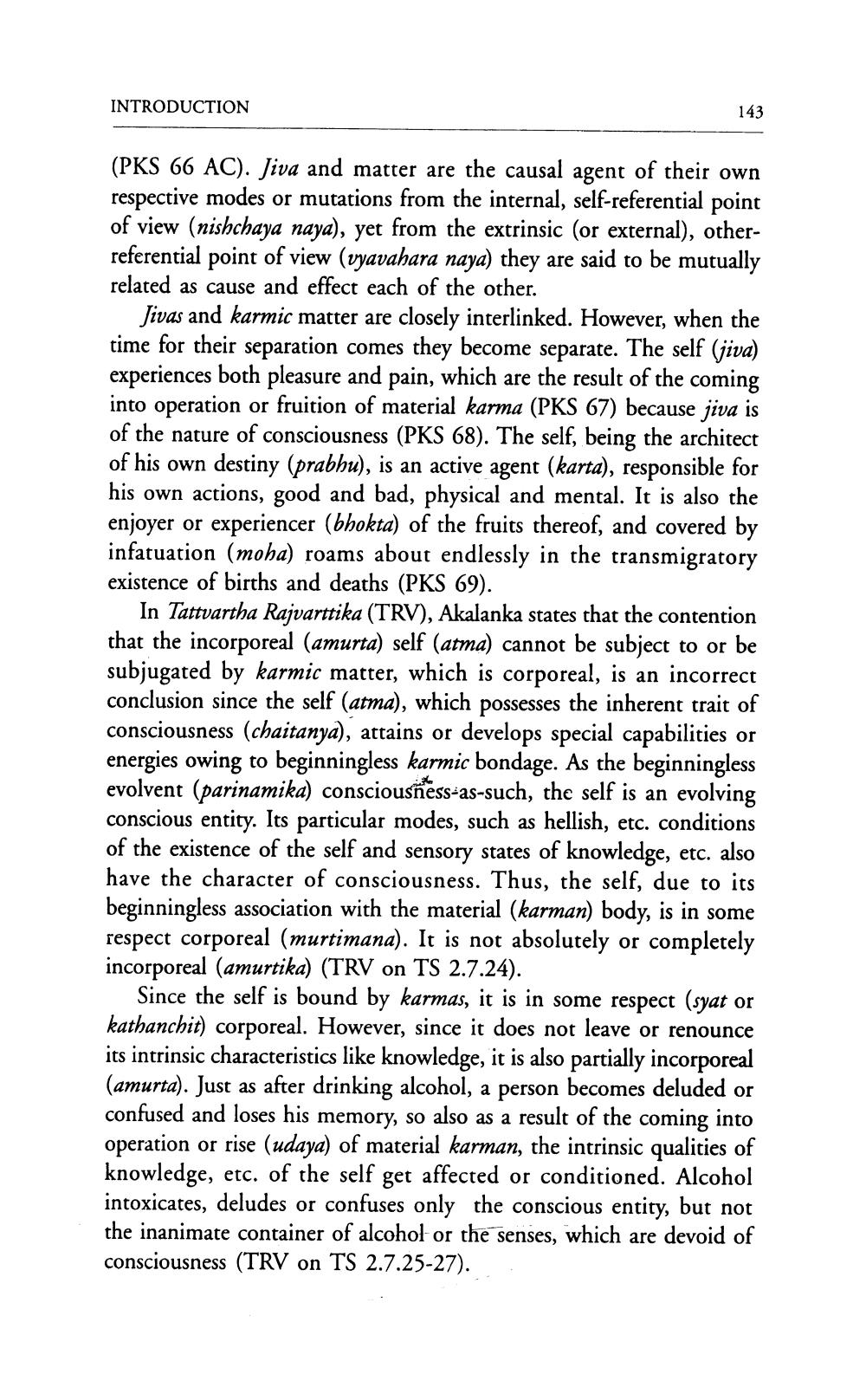________________
INTRODUCTION
143
(PKS 66 AC). Jiva and matter are the causal agent of their own respective modes or mutations from the internal, self-referential point of view (nishchaya naya), yet from the extrinsic (or external), otherreferential point of view (vyavahara naya) they are said to be mutually related as cause and effect each of the other.
Jivas and karmic matter are closely interlinked. However, when the time for their separation comes they become separate. The self (jiva) experiences both pleasure and pain, which are the result of the coming into operation or fruition of material karma (PKS 67) because jiva is of the nature of consciousness (PKS 68). The self, being the architect of his own destiny (prabhu), is an active agent (karta), responsible for his own actions, good and bad, physical and mental. It is also the enjoyer or experiencer (bhokta) of the fruits thereof, and covered by infatuation (moha) roams about endlessly in the transmigratory existence of births and deaths (PKS 69).
In Tattvartha Rajvarttika (TRV), Akalanka states that the contention that the incorporeal (amurta) self (atma) cannot be subject to or be subjugated by karmic matter, which is corporeal, is an incorrect conclusion since the self (atma), which possesses the inherent trait of consciousness (chaitanya), attains or develops special capabilities or energies owing to beginningless karmic bondage. As the beginningless evolvent (parinamika) consciousñess-as-such, the self is an evolving conscious entity. Its particular modes, such as hellish, etc. conditions of the existence of the self and sensory states of knowledge, etc. also have the character of consciousness. Thus, the self, due to its beginningless association with the material (karman) body, is in some respect corporeal (murtimana). It is not absolutely or completely incorporeal (amurtika) (TRV on TS 2.7.24).
Since the self is bound by karmas, it is in some respect (syat or kathanchit) corporeal. However, since it does not leave or renounce its intrinsic characteristics like knowledge, it is also partially incorporeal (amurta). Just as after drinking alcohol, a person becomes deluded or confused and loses his memory, so also as a result of the coming into operation or rise (udaya) of material karman, the intrinsic qualities of knowledge, etc. of the self get affected or conditioned. Alcohol intoxicates, deludes or confuses only the conscious entity, but not the inanimate container of alcohol or the senses, which are devoid of consciousness (TRV on TS 2.7.25-27).




